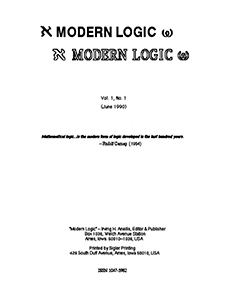Abstract
Kazan was an active center for the development of logic in the 19th and early 20th centuries. Logic courses were included in the philosophy and psychology curricula of Kazan University and the Theological Academy. Issues of logic were dealt with by Lubkin in his critical consideration of Kant and Kant's successor Kisewetter, and Lobachevskij reviewed the logic textbooks of Kant and Kisewetter.
Some of the university logic courses were taught by Theological Academy members, including Archimandrate Gavriil, A. M. Bukharev, and V. A. Snegirev. The emphasis here was on Aristotelianism. The syncretic unity of philosophy and psychology present at that time led to the psychologistic interpretation of logic of N. A. Vasil'ev and I. I. Yagodinskij and hampered formalization, although Vasil'ev effectively contributed to its heuristic aspects. Meanwhile, M. M. Troitskij and Yagodinskij worked on inductive logic. E. A. Bobrov, A. D. Gulyaev, and A. O. Makovel'skij worked on traditional and "gnoseological" logic, and Vasil'ev created a non-traditional (non-aristotelian) "imaginary" logic based upon elimination of the law of contradiction and the law of excluded middle, and he developed the idea of metalogic. His ideas also contributed towards the development intuitionistic and modal logic, although indirectly. P. S. Poretskij worked on mathematical logic. These developments of logic were broken off in 1922 by the reorganization of the university.
Citation
V. A. Bazhanov. "On the history of logic in Kazan (from the 19th to the beginning of the 20th century)." Mod. Log. 3 (1) 95 - 96, October 1992.
Information




